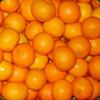Projects
Shinning a Light on Psyllids With Metalized Reflective Mulch
This cover story in The Florida Grower Magazine features the results of our four year trial using Metalized Reflective Multch (MRM) showing that it can deter psyllids from young citrus trees and increase their growth while reducing HLB and dramatically increasing yield.
Biocontrol Agent for the Asian Citrus Psyllid
Research conducted at the Florida Research Center holds promise for a new biological control agent for Asian citrus psyllid, the vector for citrus greening disease (HLB).
Using Compost in Citrus
The many benefits of applying compost to citrus are presented in this article featured in the Dec. 2015 issue of the Citrus Industry Magazine
Sustainable Citrus Program (SCP)

This program at the Florida Research Center for Agricultural Sustainability (FLARES) has reduced pesticide and chemical fertilizer inputs, reduced water consumption, increased soil fertility via the recycling of waste products back to agricultural land, and increased beneficial organisms in the grove and the soil through the use of these key agricultural components:
- Fertility Management and Soil Health
- Water Management
- Insect and Disease Management
- Waste Management and Nutrient Recycling
- Weed Management
- Biological Diversity
- Geographical Information Systems
The Sustainable Citrus Program Demonstration Grove at the Kennedy Space Center
The Florida Research Center for Agricultural Sustainability (FlaRes) has developed and is implementing a Sustainable Citrus Program (SCP) for the citrus groves located within the Merritt Island National Wildlife Refuge (MINWR) for the United States Department of Interior, Fish and Wildlife Service (FWS). The primary goal of the SCP is to reduce the impact of agricultural chemicals and practices used in the MINWR citrus groves to the adjacent waters of the Indian River Lagoon (IRL) System. The SCP at the MINWR citrus groves allows the grove management practices to meet the current Environmental Protection Agency's (EPA's) requirement to eliminate the use of toxic or environmentally harmful pesticides on national wildlife refuges. In particular, the environmental benefits of the SCP addresses the EPAs National Estuary Program and State of Florida's Surface Water Improvement and Management (SWIM) Program goals to attain and maintain water and sediment of sufficient quality to support a functioning macrophyte-based ecosystem that supports endangered and threatened species, fisheries and wildlife.
Foliar Fertilization
Foliar fertilization is the application of small amounts of appropriate fertilizers to plants foliage for assimilation and use by the plant as a source of nutrients.
Click here to learn more…
Geographic Information System (GIS)
The use of Geographical Information Systems (GIS) coupled with GPS technologies developed for citrus management, tree counting, disease monitoring, tree growth rates could equally be used by the MINWR to identify areas of concern based on environmental parameters such as areas of sensitive habitat for wildlife and flora. GIS/GPS can be used to predict where specified habitats occur.
Click here to see the use of GIS at MINWR…